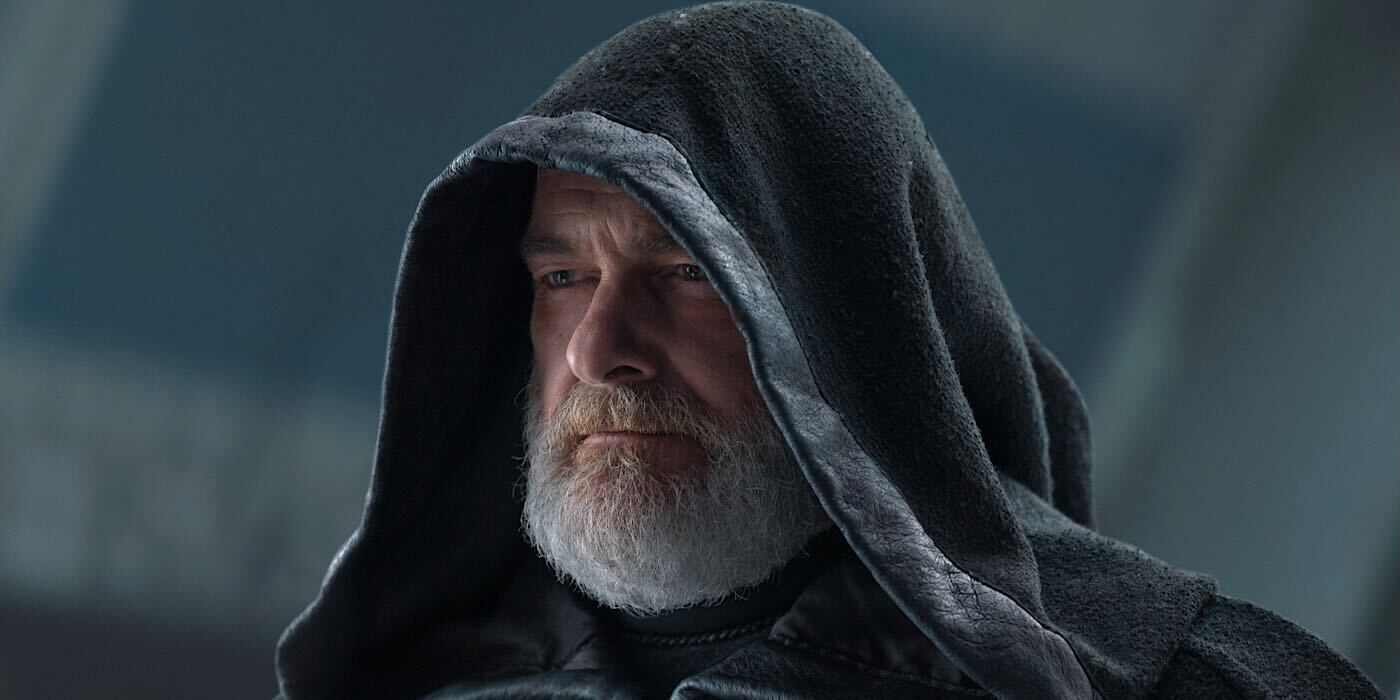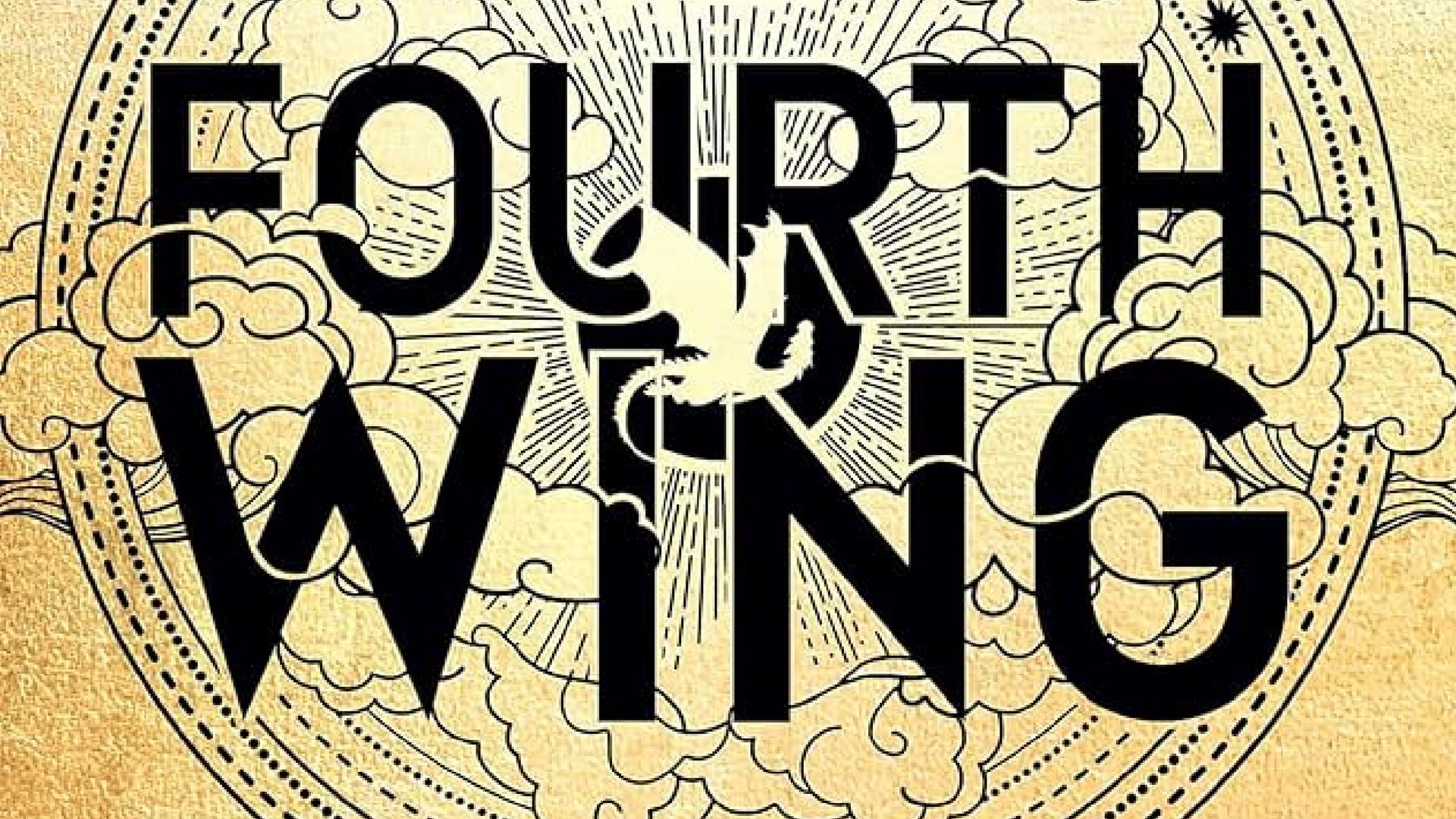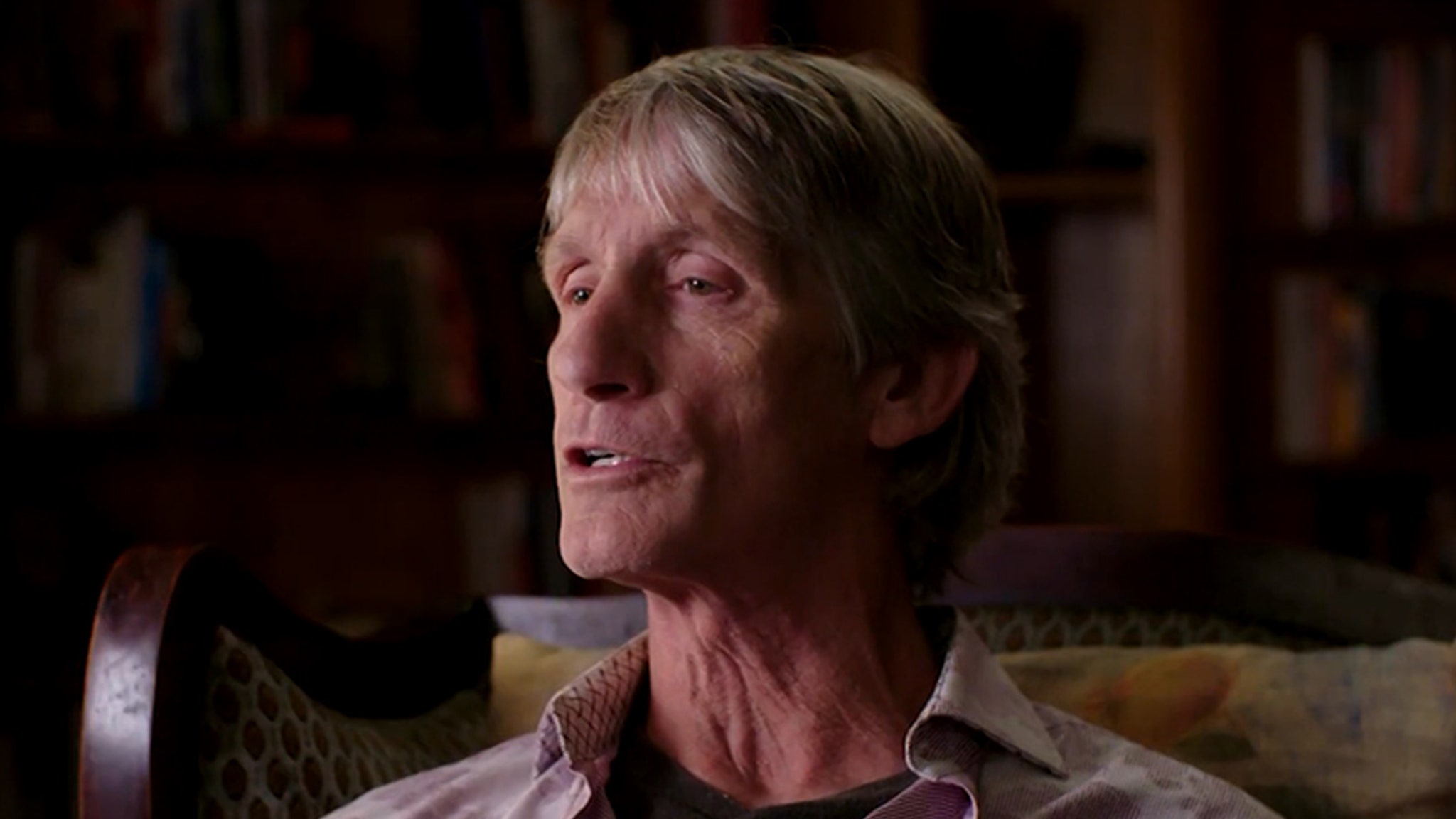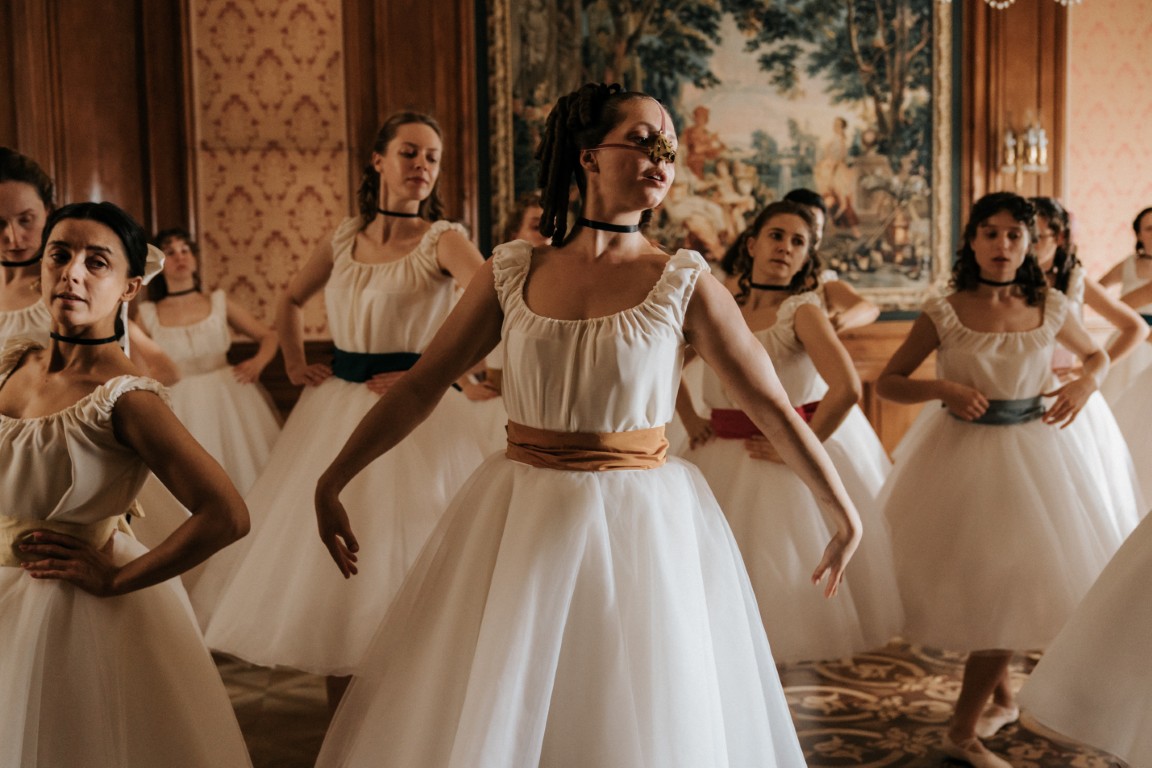Summary
-
Club Zero
is a disturbing satire with big ideas that co-exist despite their contradictions. - Mia Wasikowska delivers a haunting performance as Ms. Novak, sparking deep dives into important societal and personal questions.
- Jessica Hausner’s direction is fantastic, with a sparse score and very specific cinematography adding to the Brechtian distancing of the film.
Most films will spoon-feed you their plot, themes, and message. Club Zero won’t feed you anything, but the cold metal spoon is fantastic. It’s a film that may frustrate many people who prefer avoiding cognitive dissonance of any kind, a film where everyone is right and everyone is wrong at the same time. Then again, people of certain ideological persuasions could easily manipulate the narrative to suit their particular aims. If you give yourself over to it, though, Club Zero dismantles the easy comfort of ideology to reveal the confusing, difficult questions of our time.
The film is directed by the fascinating Austrian auteur Jessica Hausner, who continues her recent turn to English-language cinema following the fantastic Little Joe. Club Zero stars Mia Wasikowska as a new teacher at a posh, ultra-modern school, the kind that would hire an expert in “conscious eating” like herself. She has a small class of students, all in a uniformed dress code of bright yellow shirts, who sit in a circle with her Socratic style. She teaches them how to eat consciously — for the planet and themselves — and discusses concepts like waste, wellness, capitalism, climate change, and rebellion. Soon, she has everyone eating ‘consciously,’ and then not eating at all.
As this suggests, the narrative inexorably leads to some difficult (and disgusting) images and sounds, with Hausner refusing to take any easy way out. She covers all her bases here, letting the conflicting opinions of teachers, students, parents, and faculty co-exist in an increasingly unnerving space that will swallow viewers whole.
Mia Wasikowska Is Hungry for a New Way of Living
4.5/5
Release Date March 15, 2024
Runtime 110 Minutes
Pros
- Mia Wasikowska is haunting and compelling as a mysterious teacher.
- Jessica Hausner’s direction and all parts of the aesthetic are stunning.
- Club Zero tackles some provocative, important ideas at the perfect time.
Wasikowska plays Ms. Novak (perhaps a reference to Kim Novak of Vertigo, or the Slavic word for ‘new,’ or even her own character Anna Novak in The Man with the Iron Heart) in one of her weirdest performances. It’s always a good sign for a film if Wasikowska is in it; the actor tends to work with the greatest filmmakers (Jim Jarmusch, Park Chan-Wook, Guillermo del Toro, Tim Burton, David Cronenberg, Mia Hansen-Løve, Lisa Cholodenko) and on the most interesting projects she can.
Here, she’s ostensibly the villain, but she’s not really villainous in disposition. Like the film, she contains multitudes; she is chipper and manipulative, friendly and secretive. She plays a Pied Piper-like character who forms a bond with her students that is unhealthy and fanatical, convincing them that they can survive and thrive without eating any food. It begins slowly and naturally, with the students encouraged to think about what they’re eating rather than mindlessly stuffing their faces.
Novak explains how, when starved, the body eats itself in a process called autophagy, but she promotes it as a wholly beneficial thing. It will make you stronger and less tired, and can “even heal diseases, and it has been proven to prolong our life by 10 to 20 years,” she says. But she keeps her knowledge confined to the classroom with the students. “This is strictly confidential,” explains Novak. “Do not tell the other pupils or your parents. They wouldn’t understand, and by questioning you they would weaken your faith. You could be among the few that actually live, when the rest of the world is going under.”
Finding Sympathy in the Cold and Alienating Club Zero
All of this is done in an aesthetically cool and somewhat flat and dry way that could be interpreted as humorous or horrifying depending on the viewer. That’s because of Hausner’s casting and directing choices. She takes a very Brechtian approach here (something which is coming back in style, what with Yorgos Lanthimos and Riley Stearns’ often deadpan characters). The sparse yet effective percussive score and bold but monochromatic color palette add to this perfectly.
Most of the characters, especially the students, are played by non-actors, and that sometimes shows. More importantly, and thankfully, the cast largely rejects so-called emotional realism. It’s an important choice that equalizes the playing field, so to speak, so that audiences find themselves confronting opposing ideas and characters on the same level. After all, this is a film about ideas, about culture and politics and socioeconomics.
As such, the flattened performances push viewers away from relating and attaching to the characters and instead helps us understand the ideological and thematic forces at play. As Brecht wrote:
“[My theatre] in no way dispenses with emotions. And in particular not with the feeling for justice, urge toward freedom and righteous anger […] The ‘critical stance,’ to which it attempts to bring its audience, can never be too passionate for this theatre […] The spectator is. . . prevented from taking up a critical position toward the represented in proportion to the artistic efficacy of the representation.”
So what are these ideas?
Club Zero Tackles Today’s Biggest Issues with Zero Grandstanding
From a basic plot description, Ms. Novak seems absolutely monstrous, but perhaps she truly believes in her mission. In the only times we see her alone, she prays and cries at a little hand-made altar, perhaps to her mother, perhaps to God or Gaia.
Her ideology is actually understandable — people who are very food secure should probably eat less; we should produce less food from the planet and consume less fish and meat in general; we should be more mindful of what we put in our body. The ultimate way she goes about enacting that ideological framework, however, will probably be fatal, though the leap of faith she requests isn’t any more illogical than religion or meritocracy.
Related: The 20 Most Underrated Dark Comedy Movies, Ranked
Novak’s ‘conscious eating’ class stands in for a variety of hot button issues in our society. The idea of bodily autonomy (a woman’s choice of abortion, for instance, or an employee’s decision to not get vaccinated) is taken to its extreme. Does someone have the right to choose not to eat? Pro-Ana and Pro-Mia groups say yes, arguing that anorexia and bulimia are lifestyle choices. Do people have the right to kill themselves? It’s illegal in many places, but ‘assisted suicide’ is becoming more popular. It gets more complicated when we discuss our children, something which makes Club Zero al the more disturbing.
They’re Coming for Your Children
So what about children? It’s a strange thing to leave your kids somewhere for nine hours a day, with people you never chose, learning things you didn’t decide (and generally won’t learn about yourself). Novak reflects the educational boogeyman that has sent millions of parents into apoplectic fits in recent years, screaming at school council meetings, igniting the internet with online rage, and pushing for restrictive legislation.
This has gone on forever (the Scopes Monkey Trial was 100 years ago, with parents fighting over whether evolution could be taught in the classroom), but has peaked in recent years with parents’ often unfounded worries that their kids are being taught ‘woke’ ideology. Teachers have been called groomers or have been outright fired, books have been banned, and a national frenzy over Drag Queen Story Hour occurred.
In many ways, then, Club Zero could be considered the perfect Republican horror film. For people who understand that an honest life is so often about maintaining conflicting ideas in your headspace simultaneously, Club Zero will be many different things — a satire, a tragedy, a prophecy, a masterpiece of capitalism’s late-stage autophagy.
Club Zero is a production of Coop99, BBC Film, Essential Films, Parisienne, Paloma Productions, Gold Rush Films, Cinema Inutile, and the Austrian Film Institute. From Film Movement, Club Zero opens theatrically in the United States beginning March 15, 2024.
You can view the original article HERE.



























:quality(85):upscale()/2025/04/17/966/n/1922564/69dc205568017c7cad79f2.40744747_.png)


